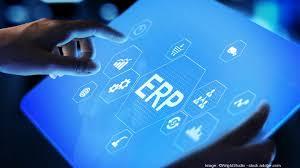How an organization should choose an ERP?

Enterprise resource planning (ERP) software is becoming an increasingly desirable solution for boosting workflows at the business application level as businesses aim for more effective operations across the board. In a single platform, ERP software integrates several back-office applications, business processes, and workflows. This could bring about fresh benefits including better data exchange, better data quality and accuracy, and greater administrative visibility.
Despite all of the advantages an ERP system can provide, many businesses choose an ERP solution that does not work well for their particular company model and objectives. Learn about some of the more advanced capabilities your organization should prioritise in an ERP platform and the procedures you should take to select the right ERP system for your industry.
Guidelines for choosing an ERP
It doesn't necessarily follow that an ERP platform is a good fit for your company just because it's well-known or has favourable reviews. Apply these best practices and follow these stages during your ERP selection process to pick an ERP system that is optimized for your business and its current technologies:
1. Establish a group to do ERP analysis and selections.
When evaluating and choosing an ERP platform, no IT specialist or business executive should act alone. Include important stakeholders from other departments who will be using this product in addition to the IT team members. They can provide you with further information about the programs they use regularly as well as about their current procedures, inefficiencies, and important specifications for a new platform.
2. Evaluate the enterprise applications and workflows you currently use.
Consider what is and isn't functioning in your present business processes and applications before choosing an ERP system. A network audit is the best approach to obtain a comprehensive picture of current procedures and constraints. You can use this technique to detect outdated or obsolete tools as well as existing silos and security problems, as well as legacy tools that need to be updated.
3. Enhance data quality as a priority.
It's a good idea to avoid duplicating any data issues, mistakes, or inefficiencies in a new system while making a significant systems transfer. Prior to an ERP transfer, think about spending money on technologies for data quality improvement such as data cleansing. Your team will save time and money by doing this step, and you'll have a better grasp of where and how data is currently used.
4. Give ERP modules in your company use cases a priority.
To operate their business efficiently, every company will require a particular set of ERP modules. Think about the areas that now cause the most pain for your business, especially in terms of the functionality of your business apps. Most major suppliers have a module that streamlines your strategy, whether you're trying to manage workflows in your supply chain or the employee lifecycle for human resources. It's crucial to avoid spending money on modules that won't actually benefit your team.
5. Take into account the technical training and expertise of your IT department.
Are the IT people on your team who will be configuring and maintaining the ERP platform highly experienced or less experienced? When selecting whether you want an ERP that takes a user-friendly, templated approach or a more open-source, configurable approach, you should consider the experience and expertise of your team. Before beginning, you should look into the customer assistance offered by a specific ERP software.
6. Prepare a list of questions and paperwork for a demo.
Your team should arrange a product demo with a customer experience specialist as a prospective ERP client. But make sure the demo includes all you need to know before buying by preparing documentation and important questions before you actually go through the product demo process.
Selecting the ideal ERP for your company
The ERP platform you choose and the way your team configures it will have an impact on all critical users, applications, and regular business operations. When choosing modules and rolling out the tool across various departments, your business will be well-positioned for success if your team puts the necessary effort and time into identifying the ideal ERP system. It's crucial to consider the features offered by your platform, the people who can and will help your implementation along the road, and how this platform will evolve over time to meet your changing needs.